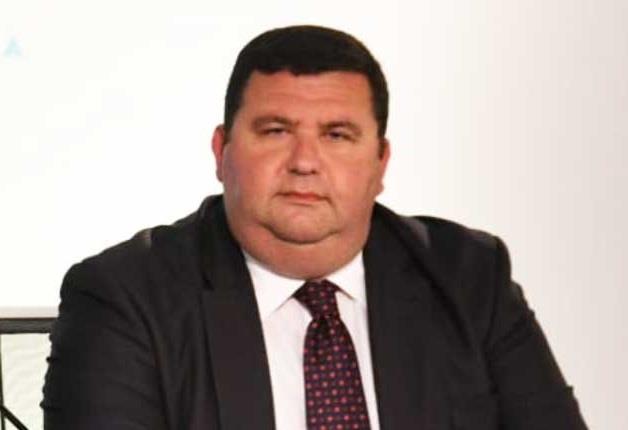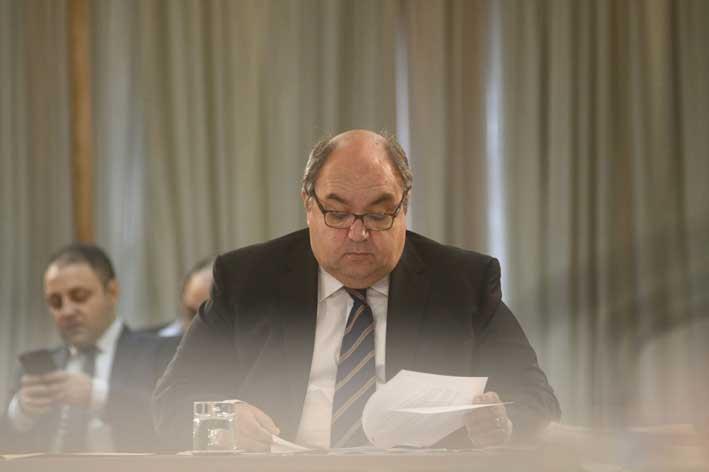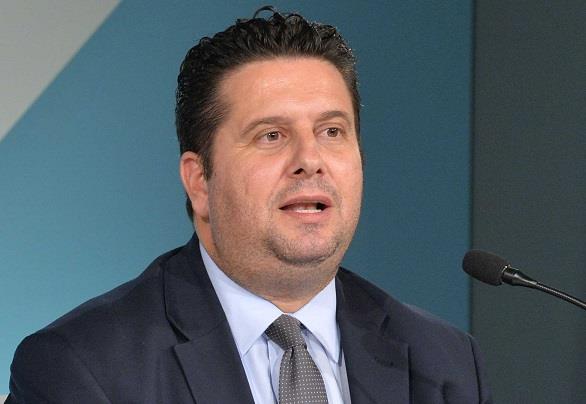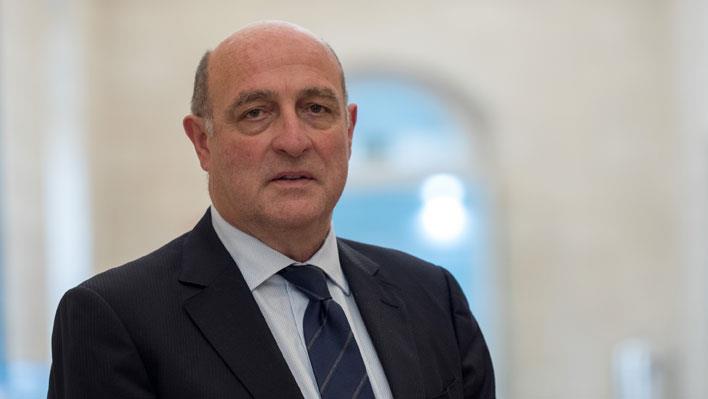Standards Commissioner George Hyzler believes that the appointment of Members of Parliament as persons of trust runs counter to the underlying principles of the Constitution. He notes that Parliament made an exception to this disqualification, although he argued against it.
In a report published yesterday, he noted that the public administration should – as much as possible – be protected from politicisation. The widespread appointment of people of trust puts this principle at risk, particularly when those appointed are Members of Parliament.
Government back-benchers serving as government employees on a person of trust basis include Glenn Bedingfield (below), Rosianne Cutajar and Alex Muscat.

In November 2018, reports said that Bedingfield’s full-time job – which he carries out from an office inside the premises of Cospicua Local Council – pays him over €43,000 a year, apart from the €20,000 honorarium he receives as an MP.
In 2018, a parliamentary question revealed that Rosianne Cutajar occupied the full-time post of the Commissioner for the Simplification and Reduction of Bureaucracy. It was noted that she earns more than €34,504 for her role in the Prime Minister’s Office.
In the same reply, Prime Minister Muscat added that Alex Muscat is also under on the OPM payroll as a Private Secretariat Officer to the Prime Minister.
Manuel Mallia (below) was also engaged on a part-time contract to provide legal services at the OPM. In 2018, he was put on the government’s payroll as a ‘person of trust’.

MPs employed on a ‘contract of service’ basis
Hyzler comments that this contract of service procedure bypasses the normal recruitment procedures. The justification for this evident breach of the Constitution is that the Government requires flexibility to appoint specialists.
This practice seems to have been extended to the appointment of MPs, the report notes. A contract of service is no different to a contract of employment, whether for a fixed or an indefinite term.
Apart from the part-time contract to provide legal services at the OPM, Manuel Mallia holds various political appointments and acts as a non-executive Chairman of a State entity. He is also Chairman of the Occupational Health and Safety Authority (OHSA).
MP Edward Zammit Lewis (below) was given a retainer with Identity Malta for consultancy services, whilst in November 2018 it was revealed that he was providing legal consultancy to Water and Energy Minister Joe Mizzi, on the direct recommendation of the OPM.
MP Etienne Grech was also appointed as Chairman of the Consultative Council for the South of Malta in 2017.
MP Stefan Zrinzo Azzopardi was appointed as Chairman of the Grand Harbour Regeneration Corporation and also was given a contract through the OPM for legal services to the state utilities billing agency, ARMS.

MPs who were public officers regularly employed in the public service prior to their election to the House of Representatives
Quoting from the Constitution, Hyzler notes that the general principles are that a person is not eligible for election to the House of Representatives if he holds – or is acting in – any public office.
He notes that the reason for this is that not only does serving as a public officer potentially reduce a backbencher’s independence from the government, it also puts the backbencher’s superiors in the public service in an uncomfortable situation in that they may have to enforce discipline over a person who might, one day, become their Minister or Parliamentary Secretary.
He does say that, on the other hand, the public service is a large body consisting of around 30,000 employees so it could be argued that this is a significant percentage of the labour force in Malta.
Going into another law, mainly the Members of Parliament (Public Employment) Act of 2004, Hyzler explains that there is an exception to this prohibition and that it is consistent with the Constitution as there is the phrase “save as otherwise provided by Parliament”.
He argues, however, that Parliament went well beyond this exception. “The element of political impartiality underpins the entire philosophy of the public administration. There is a glaringly obvious contradiction between the role of MP which is – by definition – political and partisan and that of a public employee who is subject to ethical rules of political impartiality.”

MPs who were regular employees of a statutory body prior to their election to the House of Representatives
The report states that some MPs are regularly employed with statutory bodies. Statutory bodies are granted their own legal personality by law, meaning that they are employees in their own right. MP Anton Refalo (above) also holds the position of Chairman of Heritage Malta, which does not prohibit MPs being nominated to the Board.
MPs who are University lecturers
Hyzler believes that such positions in academia cannot be considered as giving rise to conflict.
MPs holding appointments on the Boards of the Planning Authority and the Lands Authority
The report notes that, by law, the government and the Opposition can appoint one member each as their representative on the Boards of the Planning Authority and the Lands Authority.
Given that these MPs fulfil a legal role in the representation of the Government and the Opposition, Hyzler does not consider that their appointment to these two statuary bodies gives rise to any concern from an ethical – or any other – standpoint.
Labour MP Clayton Bartolo is the Government’s representative on the PA board.

MPs appointed as legal and other consultants by the government and/or statutory bodies
Consulting the law, Hyzler (above) asks rhetorically why the law should prohibit an MP from being awarded a contract to sell paper to the Government, either directly or through a company in which he has some involvement, following a public call for tenders, yet it would not prohibit an MP from accepting a consultancy contract without any call and with minimal transparency.
The irony, the report notes, is that contracts of work where the contract would supply material as well as his skill or contracts for the supply of merchandise are far easier to regulate than contracts of service.
On this matter, Hyzler concludes, the term ‘contract of works’ should be formally introduced to include contracts for service.
Robert Abela is one such person who was employed on a contract of service basis. In 2017, a Parliamentary question revealed that he earned more than €580,000 as a consultant, acting as the Prime Minister’s ‘legal advisor’.
He also had a contract of service with Transport Malta and the Planning Authority, with the latter expiring on 30 June 30, 2019. Abela’s law firm had originally been contracted in 2001. In 2016, he also received a legal brief from Air Malta.
MPs appointed by the government as Chairpersons or Directors of Statutory Bodies
MPs appointed to such boards, whether or not allowed by the legalisation regulating the body to which they are appointed, are nonetheless subject to the “Code of Ethics for Public Employees and Board Members” and consequently placed in a position of conflict with the provision of said code.
In this section, Hyzler notes that the issue of impartiality, especially political impartiality, of the public administration, cannot be so simply disregarded and this manifest conduct should be resolved without delay.